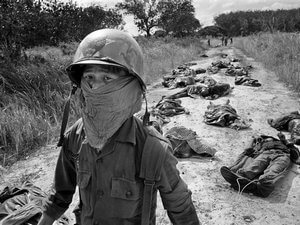Oil and Violence: What’s New?

There is a correlation between oil prices and geopolitical unrest: low prices creates tension; conversely, tension can lead to contracting supply and rising prices. Current geopolitical unrest among oil producing nations includes Venezuela’s collapse; potential sanctions on Iran; and, flare-ups in Syria and Yemen (19 oil tankers were held hostage off the Yemeni coast). Perhaps the most unusual geopolitical unrest is happening in Mexico. Mexico’s energy-economy has grown throughout the last half-decade; however, it faces a series of unique non-market threats:
- Huachicoleros steal about $1.5 billion worth of oil-products each year from Pemex.
- Pirates masquerading as fisherman attacked oil-rig platforms in the Gulf of Mexico and commandeereed 11 oil platforms and 10 vessels in the Bay of Campeche.
- Entire towns that operate like organized cartels are illegally stealing gasoline and selling it off-market.
Of course, all this is just what’s happening this week; the blink of an eye considering that violence and privation have been following the oil market around the globe for the last 90 years. Indeed, when one thinks about the externalities associated with fossil fuels, one needs to consider war, and the lives that have been lost all over the planet in the quest to maintain access to low-priced oil.
Still, we need to be fair. Suppose for a moment that oil loses its value as a commodity. Suppose further that no source of energy replaces it, i.e., that some combination of solar, wind, nuclear, or who-knows what else puts us in a position that energy is too cheap to meter. Will wars stop as a result?
Hardly. Humankind, as it’s presently wired, will find something to fight over. Most likely it will be potable water, but even if it’s not, it’s hard to imagine that all the money associated with killing people and taking their stuff is far too ingrained as a modality of human life that it could go away.
As always, I’m willing to be wrong, and here, I’m sure hoping that’s the case.

Craig,
Economics and tribal/ideology are the principle reasons for human organized conflict.
Both are usually so intertwined and represent the ideals of security insecurity which is basic to human thinking.
You are correct when you state oil isn’t the problem, before oil it was gold, land, horses, food, resources or women. (Roman v Sabine tribes. Humans are, by nature, clan animals. We are a creative, adaptive, acquisitive species, along with our status as the primary omnivore comes an aggressive, resilient attitude to problem solving.
Evolution didn’t hard wire the humans species to be peaceful, passive herbivores. Armed with a large brain, prehensile thumbs, social cooperation, upright posture, effective tools and control of fire, a sub species of Homo Erectus set out to subjugate the planet.
Naturally, the first to perish or be absorbed, were all other strains of humanoids and relatives.
Eventually, humans began to seek greater security as agricultural techniques increased sufficiently for humans to build permanent settlements at which point security became the primary concern. As population and surpluses grew, economic conditions allowed for specialization and “perceived or aesthetic” wealth, including technology.
Resource conflicts arose as populations grew in size and technical sophistication.
Such is the nature of humankind. It’s our great strength and our sorrow. Keeping our competitive nature under control and channeling our aggressive, questing nature into peaceful achievements has always been a great challenge.
That’s the human paradox.